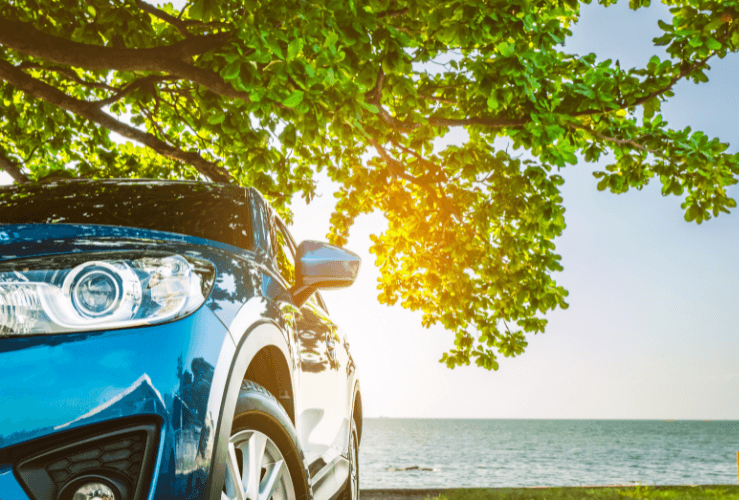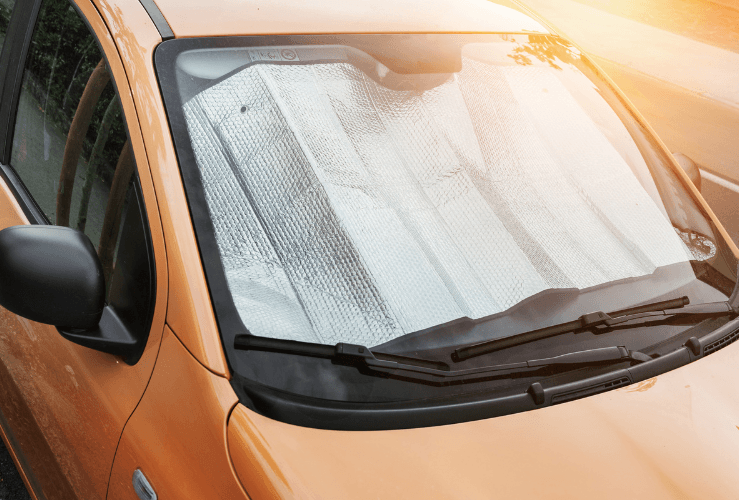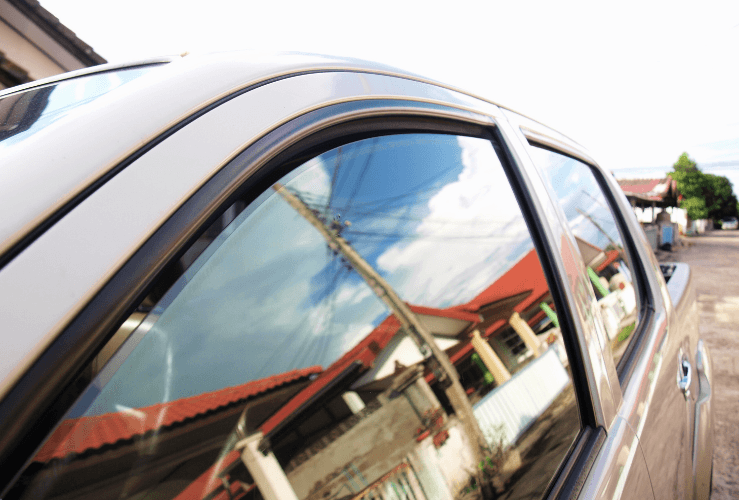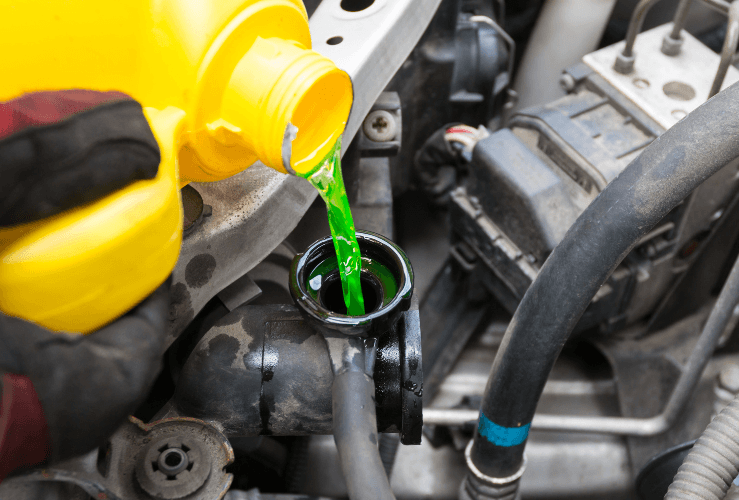Learn how to cool your car in summer - both when it’s parked up and on the road
The arrival of summer brings the tantalising prospect of spontaneous excursions and weekend road trips: castles, coasts and car boot sales await.
But the flipside of summertime driving is dealing with the heat - particularly when your car has been parked in the sun for several hours.
A sun-heated vehicle can feel like an oven - and does no favours to your engine, either.
In this article we'll look at how to keep your parked car cool in summer - and how to reduce your car’s temperature more generally.

Park in a shaded area
This is among the simplest ways to stop your car's interior from getting unbearably hot.
Take an extra moment to seek out a shaded parking spot.
Even if it’s a little further away, the extra walk will be worth having a car interior that isn’t unpleasantly hot later on.
Parking in the shade can also help keep your engine cool (see below).
Better still, park in a garage
If you have access to a garage, it's a good idea to use it.
The additional time it will take to park inside will help save you and your passengers from a stiflingly hot interior.
Leave your doors open before setting off
Leaving your car doors open for 20 minutes before you set off can dramatically reduce the interior temperature.
This might not be feasible in every situation (a public parking area with minimal space, for example), but it's a simple and effective way to cool your cabin.

Sunshades or window visors
Of all the heat-beating approaches available, this is perhaps the most effective.
Invest in a sunshade or window visor and remember to fix it onto your windscreen whenever you leave your vehicle - even if it's just for a few moments.
To really keep the heat off, place a sunshade or visor on the rear windows, too. This is an especially good idea if you have passengers (human or animal) in the back.
Dashboard cover
Dashboard vinyl can heat up quickly in the sun's glare - and can can be painful to the touch. But a fabric or upholstered dashboard cover is an economical and easy way to prevent a hot dash.
They are also effective at preventing sun damage to the vinyl itself - which can get cracked and faded with too much sun contact.
Use a hand towel to cover the steering wheel
Nothing prevents a quick getaway more than a painfully hot steering wheel. But placing a hand towel, old t-shirt or scarf over the wheel will prevent it from heating up.
Keep heat-sensitive possessions out of the sun
It's best to keep your electronics and other heat-sensitive belongings out of the sun. Keep them under a seat or in the glove compartment if you can. Otherwise throw a (dry) towel over them.
Smartphones can be damaged by direct sunlight in a number of ways; including damaging the screen pixels. An overheated smartphone could also short-circuit, causing irreparable damage.
Power banks, too, have the potential to short circuit - which in extreme cases could lead to fire or explosion.

Open your windows - a little
While leaving your vehicle with the windows wound down is obviously a risky proposition, keeping them open a little will improve ventilation and ensure you come back to a cooler cabin.
Even a small crack will help.
Invest in a solar-powered fan
A solar powered fan can be bought for as little as £30. Simply keep it running when you leave your car, and, when used in conjunction with slightly-open windows, will help reduce the cabin temperature.
What's more, solar fans can be used in various other high temperature situations, from garden sheds to attics.
Cover leather and vinyl seats with blankets
How to keep a car seat cool in the summer?
If you've ever returned to a car with leather or vinyl seats on a hot summer's day, you'll know how unpleasant they can be - especially for people in shorts and t-shirts!
A simple way to prevent getting burnt by the upholstery is to throw some blankets over them. When it’s time to move you can place them on the floor or in the boot.

How to keep your car engine cool in the summer?
Parking in the sun doesn't just create an unpleasant cabin temperature and blazing hot seats - it can also lead to an overheated engine.
With this in mind, finding a shady parking spot is even more important. This applies to both combustion-engine and electric cars.
Here are some more ways to keep your engine temperature within the safe limits.
Check the coolant level of your car
First and foremost, ensure the coolant reservoir is filled to the recommended level.
If it's low, your owner’s manual will explain which coolant mixture is required.
Check your car radiator for damage
It's important to check your radiator regularly - especially in summer months.
Look for clogs, leaks and other damage. Ensure the radiator fins aren't clogged with dirt or insects.
If required, use compressed air or a soft brush to clean them.
Find out what to do if your car radiator has a leak.
Check the temperature gauge
Your vehicle's temperature gauge will alert you to an overheated engine.
If the gauge enters the hot zone, pull over in a safe location and let the engine cool down.
FAQs about running a car in the summer
Do cars run hotter in the summer?
Automotive combustion engines are designed to run pretty hot - at around 90 degrees. However, if engine temperature nudges towards 100, there could be a serious mechanical fault.
For this reason keeping your coolant level topped up is critical in the summer months.
The same is true of electric cars; keep your EV out of direct sunlight whenever possible.
Do cars use more coolant in the summer?
Yes, combustion engine vehicles use more coolant in summer.
Due to higher ambient temperatures, your engine will use more coolant in July than it will in December.
Note that electric vehicles use coolants similar to those used in combustion engines. Your owner’s manual will detail which coolant to use.




